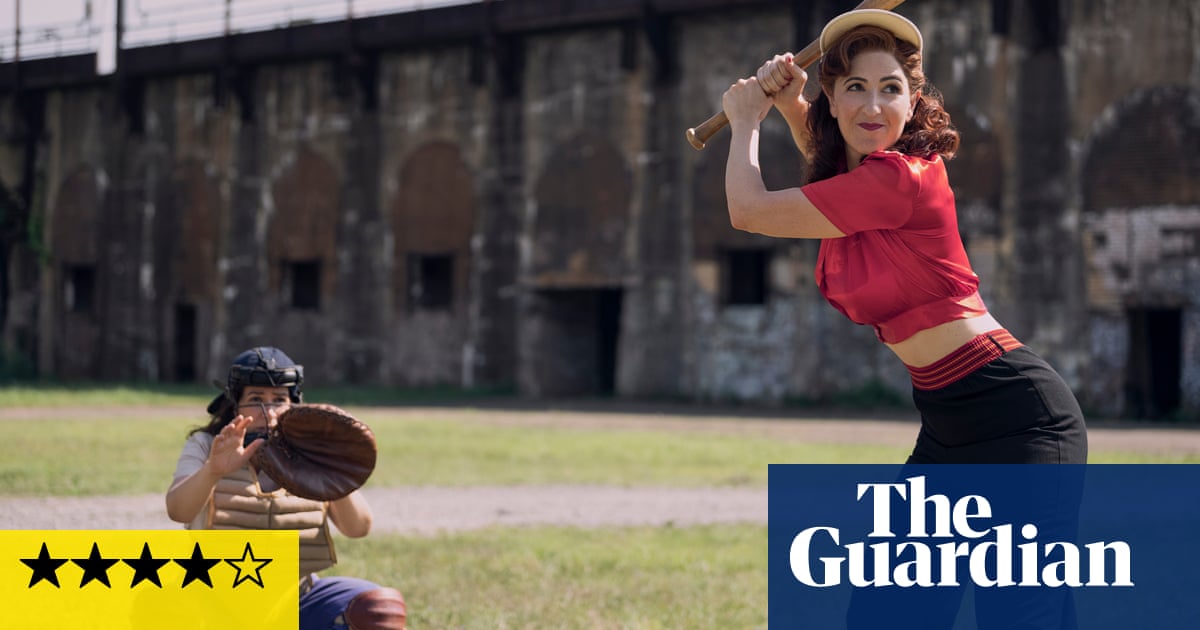A League of Their Own review – this gorgeous baseball drama is about something far bigger than sport - 5 minutes read

I hold such affection for Penny Marshall’s widely loved 1992 baseball film A League of Their Own that, for years, I felt an irrationally strong flash of disappointment whenever its name appeared in the TV guide and I ended up flicking over to a quizshow about sport. I expected Madonna with a baseball bat; I got James Corden and golf gags. Such a terrible wrong will be righted at last by this new A League of Their Own (Amazon Prime Video), a gorgeous, warm and expansive eight-episode version of the story that inspired the film: the trials and tribulations of a women’s baseball league, put together to draw in the paying punters during wartime, which was hugely popular in its day, then all but erased from the history of the sport.
While Marshall’s film largely told the story of Dottie (Geena Davis), this has the time and the cultural appetite to tell the stories of many women from all walks of life. Abbi Jacobson, who co-created the show with Will Graham, stars as Carson, a small-town slugger who catches a last-minute train to Chicago to try out for the league. There, she meets a ragtag bunch of fellow baseball lovers who will become a new version of family.
It is charming from the off. Jacobson, who found fame with Broad City, is an effervescent lead whose comic style emerges as a sort of walking cringe, wincing her way through varying degrees of embarrassment, all the while hanging on to a winning sincerity. There is a democracy to her role here, both as star and showrunner. Carson is one of the main characters, whose importance to the team grows throughout the series, but she is reluctant to take the spotlight. One of the underlying messages – crucial, I suppose, in stories about team sports – is the importance of pulling together. It is surprisingly heartening, even inspirational, feelgood drama, yet without slipping into trite platitudes or excessive sentimentality.
The story begins with Carson, but quickly becomes a broader church. Her co-lead is Max (Chanté Adams), a pitcher with a staggering arm who is excluded from trying out for the new women’s league because she is black.
Carson and Max face their own troubles and issues and, while they occasionally meet to discuss their lives, their orbits are very different. Shows that run on two separate rails do not always come together, but here it works brilliantly, and both sides hold their own appeal. Max’s story is particularly rich, and unfolds at a lovely pace as she figures out what is possible for her, and who she can be.
This is 1943, so racism and sexism abound, as does the question of what femininity is supposed to look like. The league is a commercial venture, and the chocolate mogul bankrolling the idea despairs at the athletes before him: “My God, look at their calves, they’re enormous!”
It is a simple idea, but placing these players into a world of naysayers, who tell them they can’t do this and they can’t do that, is utterly effective, because it means every triumph hits hard. And while the men see this as a money-making exercise, the stakes for the women could not be higher. From the players to their chaperone, this is about something far bigger, and far more poignant, than sport. It is about living a life they never thought they would get to live.
That plays out in the love stories that underscore the action on the field. Bombshell Greta (The Good Place’s D’Arcy Carden) is the closest to a Madonna-ish character here, and while she pretends to be thirsty for the uniformed soldiers on leave, Carson soon finds there is more to her than that.
There are butch characters, who balk at the rules that say they must wear a skirt, and multiple queer romances, though the fact that this is the 1940s means that, for all the openness viewers get to see, much of the story is still happening in the shadows. A trip to a queer speakeasy, later in the series, is a bruising reminder of what is at stake.
There are nods to the film, as well as revisions and updates. The role of the coach, taken here by Parks and Recreation’s Nick Offerman, is less of a scene-stealer than Tom Hanks’s coach Dugan, and the point about the level of his contribution is made succinctly. Rosie O’Donnell, who starred in the film, has a small role, too, and it is easy to imagine that this is where her original Doris might have ended up.
I say this as a fan of the film, but in many ways, this feels like a more complete version of the story. It is as touching as it is funny, even if it turns out that there is crying in baseball, after all.
Source: The Guardian
Powered by NewsAPI.org